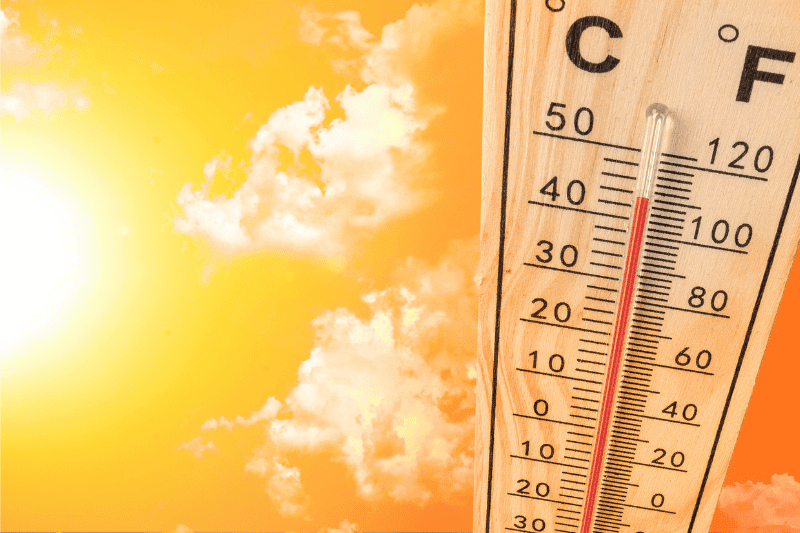Extremely hot temperatures usually cause A/C systems to break down sooner than they’re supposed to. When it’s super hot outside, your A/C struggles to cool your home and has to work harder and longer to do so. Running constantly will overwork parts of your A/C, which strains your entire system.
Luckily, there are a variety of ways to protect your A/C from breaking down in extremely hot temperatures, such as:
- Replacing your air filters regularly
- Reducing the heat coming into your home the best you can
- Being careful with your thermostat settings
Below, we’ll discuss what you can do to prevent your AC from breaking down from constant usage.
Is your AC overheating and you want to get it checked ASAP? Contact Shafer Services Plus. We provide same-day AC repairs and 24/7 emergency service. Schedule with us today!
Prevention Tip #1: Replacing your air filters regularly
When your AC is running constantly because it’s hot outside, your air filter is going to clog faster than normal. If your filter clogs, your AC has to work harder to pull warm air into the system, leading to a higher chance of the AC overheating.
Replacing your air filter whenever it’s dirty is the best thing you can do to keep your AC from breaking down. A clean air filter keeps your AC in optimal condition to fight super-hot temperatures.
Note: Getting at least annual AC tune-ups can also prevent your AC from breaking down in extremely hot temperatures. Learn more about what to look for in an AC tune-up.
Prevention Tip #2: Reduce the amount of heat coming into your home
Another way to help your AC when it’s hot outside is to reduce the amount of heat coming into your home. The less heat that enters your home, the less heat your AC has to remove and the less strained your system will be.
Here are two simple ways to prevent heat from entering your home:
- Install shade screens, black-out curtains, shutters or blinds on your windows. This is a useful tactic because most of the heat entering your home comes through the windows.
- Seal any leaks in your ductwork. According to Energy Star, 20-30% of your conditioned air is lost to duct leaks. Sealing your duct leaks will keep cold air in and warm air out. This is important because the more cool air that makes it from your AC to your home, the less your AC has to work to keep your home cool.
Prevention Tip #3: Being careful with your thermostat settings
While it’s tempting to turn off your A/C when you’re not home to lower your energy bills, doing so could overwork your AC.
Turning your A/C on and off puts a lot of strain on your system, which can result in breakdowns. This is because your A/C requires more energy when starting up than it requires when simply changing the temperature.
Also, your A/C doesn’t just remove heat from the air—it also removes humidity. Turning off your A/C increases your home’s humidity levels, which can cause problems like:
- Mold growth
- Warped wooden floors or rotten wooden furniture
- Peeled wallpaper and paint
Instead of shutting off your A/C entirely, you could increase the temperature by 7-10 degrees whenever you’re not home. According to Energy.gov, this increase for 8 hours a day in the summer could save you as much as 10% a year on your cooling costs.
Need help with an overheating A/C? Contact Shafer Services!
Is your AC still overheating in hot temperatures despite following the above advice? Or maybe your A/C is overheating even when the temperatures are mild? Contact Shafer Services Plus. Our San Antonio technicians are highly-skilled at A/C repairs. We provide quick, same-day AC repairs as well as emergency repair service.

